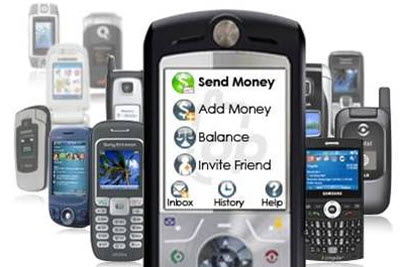
It will allow a bank to deploy its own, branded mobile service in less than 30 days. With it, bank customers will be able to transfer money to anyone using mobile phone transactions.
[aditude-amp id="flyingcarpet" targeting='{"env":"staging","page_type":"article","post_id":181783,"post_type":"story","post_chan":"none","tags":null,"ai":false,"category":"none","all_categories":"business,mobile,","session":"A"}']This is a good way for banks to avoid being bypassed in the new age of money. For instance, after the earthquake hit Haiti, more than 5 million people made donations to charities such as the Red Cross via text message. These transactions were handled by mobile phone carriers, not banks. And in countries such as Canada, mobile carriers have created a mobile payment service that competes with bank transactions such as checks or automated teller machines.
Altogether, some 36 million U.S. adults use mobile payments. And those people are often using mobile carriers or PayPal, Zong or Boku as their payment providers, not banks.
AI Weekly
The must-read newsletter for AI and Big Data industry written by Khari Johnson, Kyle Wiggers, and Seth Colaner.
Included with VentureBeat Insider and VentureBeat VIP memberships.
The services let someone receive a payment via a mobile phone, web site or email. When a user wants to pay for something, they click on a button that initiates the bank’s transaction, using the Obopay platform. The service transfers money to the web site or directly into the recipient’s bank account.
Obopay will also let a bank customer send money to anyone directly from his or her own bank account, using a debit card. Recipients don’t have to be signed up for the service to receive the money and can direct the funds into their own bank account using their debit card number or bank account and routing number. They can also direct the funds to a prepaid card and get access to the funds for online shopping.
A feature called Family Money by Obopay lets bank customers send money instantly to family members for emergencies or scheduled payments. The receiving family member can get the money direct to their own bank account or to a prepaid card. Parents can “top-up” funds instantly from their accounts. Use of the prepaid debit card allows parents to monitor spending in real time.
You can also transfer money from one bank to another. The customers can enter a debit card number or bank account and routing number. Banks can choose the level of service they want to offer as well as the fees that they will charge. Obopay’s existing partners include Nokia, MasterCard, Citibank, AT&T, Verizon, Essar, Yes Bank in India, Blackberry and Societe Generale.
To date, Obopay has raised $140 million and has 200 employees. The company will collect fees on behalf of the bank and charge a wholesale fee to the bank. But the banks benefit because mobile payments can be a lot cheaper to execute than check transactions, which generate a lot of paperwork.
[aditude-amp id="medium1" targeting='{"env":"staging","page_type":"article","post_id":181783,"post_type":"story","post_chan":"none","tags":null,"ai":false,"category":"none","all_categories":"business,mobile,","session":"A"}']
VentureBeat's mission is to be a digital town square for technical decision-makers to gain knowledge about transformative enterprise technology and transact. Learn More
